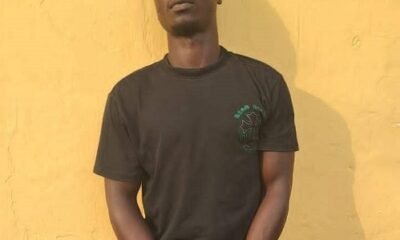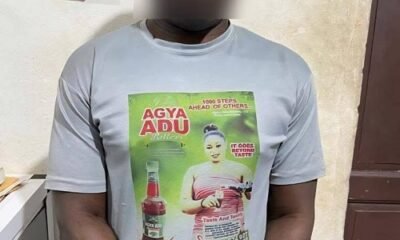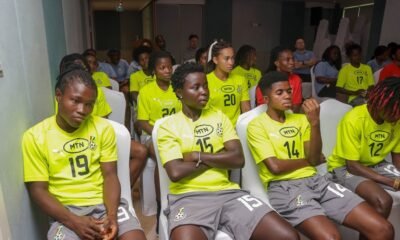Profile
Meet Mavis Adjoa Yeboah Adjei, brain behind leading clothing giant

Gone were the days when people gave little attention to what they wore for public functions.
One’s fashion sense has become a big deal in recent time with the use of social media taking the fashion craze a notch higher.
At some high profile entertainment events with red carpet receptions, one often hear a harmless question like, ‘what are you wearing,’ which in effect means the identity of the creator of one’s dress.
Fashion lovers have been very alert to this, and in the process become very choosy and careful about what they wear out.
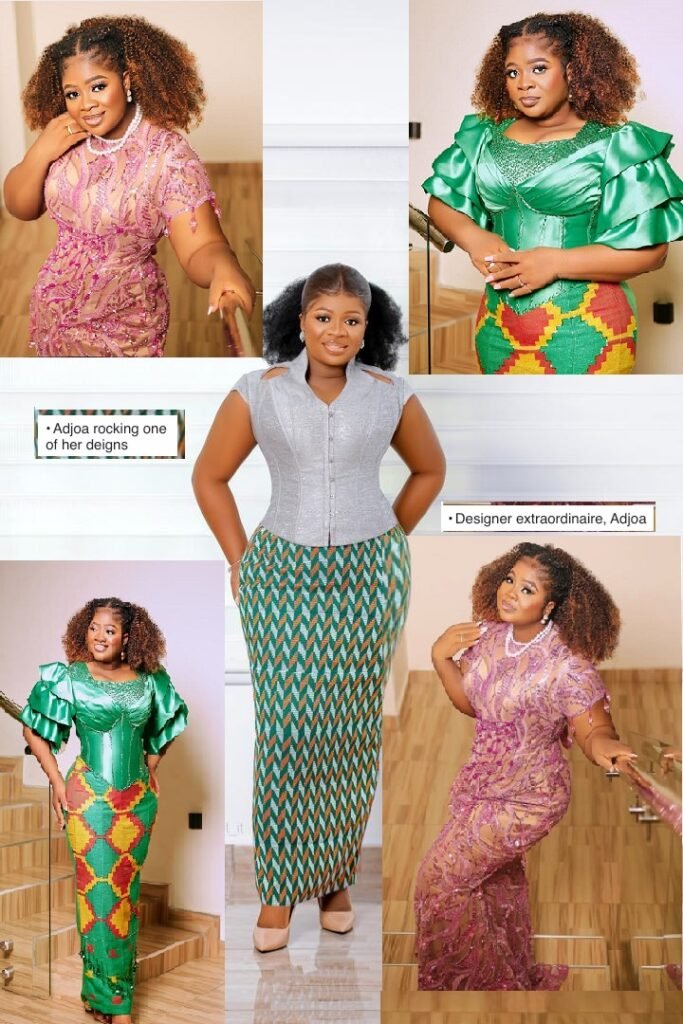
This, therefore, requires a vibrant industry, driven by hardworking designers to meet the increasing demands for such designs.
One of such persons making giant strides and amazing designs for the past 14 years is Mavis Adjoa Yeboah Adjei , a visionary CEO and Creative Director of Adjoa Yeboah Clothing.
Mrs Adjei ventured into fashion designing after giving her cloth to a seamstress to work on for a programme, only to be disappointed on the D-day.
“I was frustrated because I didn’t have anything to wear. Through my frustration, I decided to enroll at the Joyce Ababio College of Fashion. After that I launched my business,” she narrated to The Spectator.
“I’ve always believed in nurturing one’s passion. My love for fashion and design led me to pursue formal education at the Joyce Ababio College where I honed the skills necessary to turn my passion into a thriving business,’ she indicated.

The old student of Ghana Secondary School, Koforidua, says she has this desire to provide a unique blend of fashion outfits in order to satisfy the variegated tastes of a myriad of clientele.
Adjoa, as she is affectionately known, was inspired by colours and considered the body type of clients before making an outfit for her clients.
And her biggest aspiration was to be the number one in the industry, providing bespoke clothing solutions to the generality of mankind as they step into the world of work and social network interactions/ programmes with unparalleled confidence and elegance.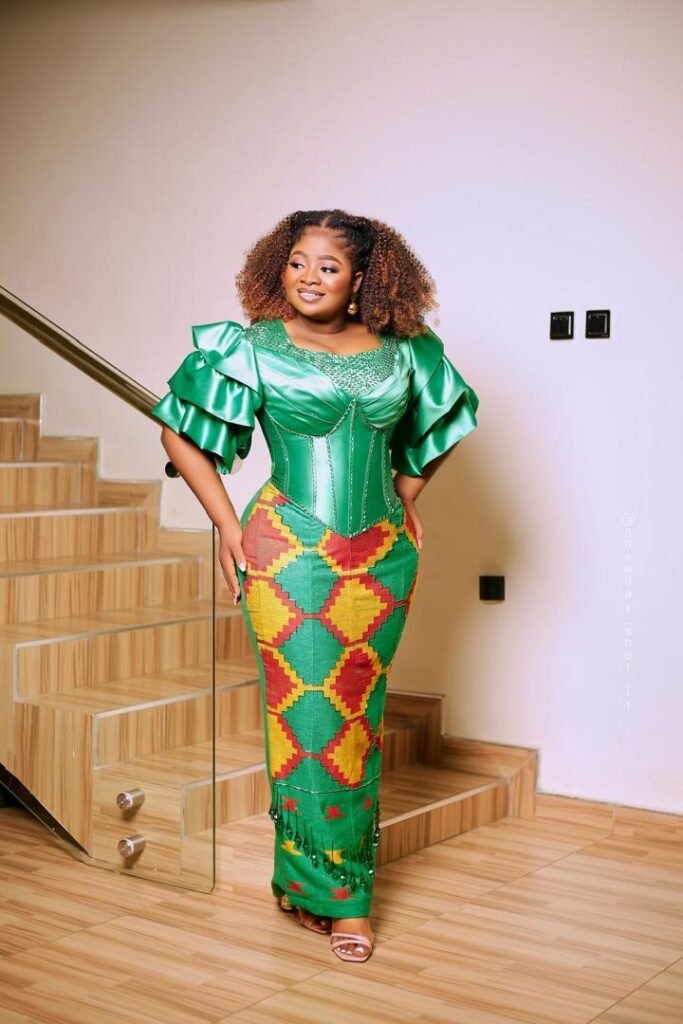
Adjoa’s designs have been worn by both national and international celebrities, including Anita Akuffo, Korkui Salormey, Dentaa Amoateng and Rosalyn Felli, just to mention a few.
Despite the busy schedule with work, Adjoa, a mother of four, carefully plans her activities in order to meet the demands of family life as well.
“I prioritise my time, ensuring that I’m fully present in both my professional and personal life. My family’s support has been crucial in helping me manage these responsibilities, allowing me to excel in both areas.”
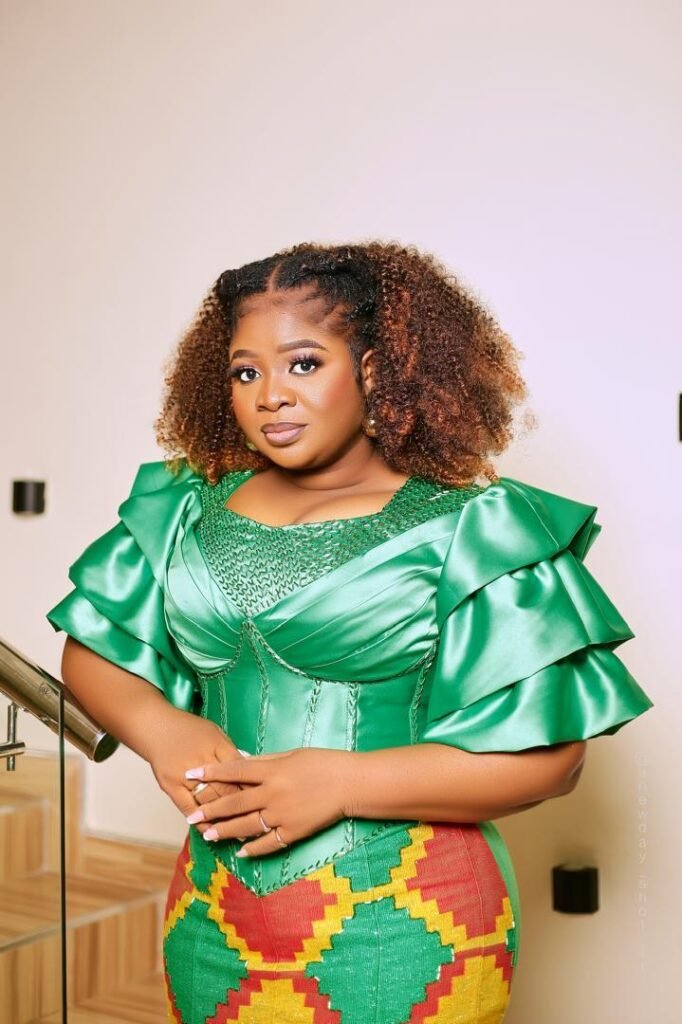
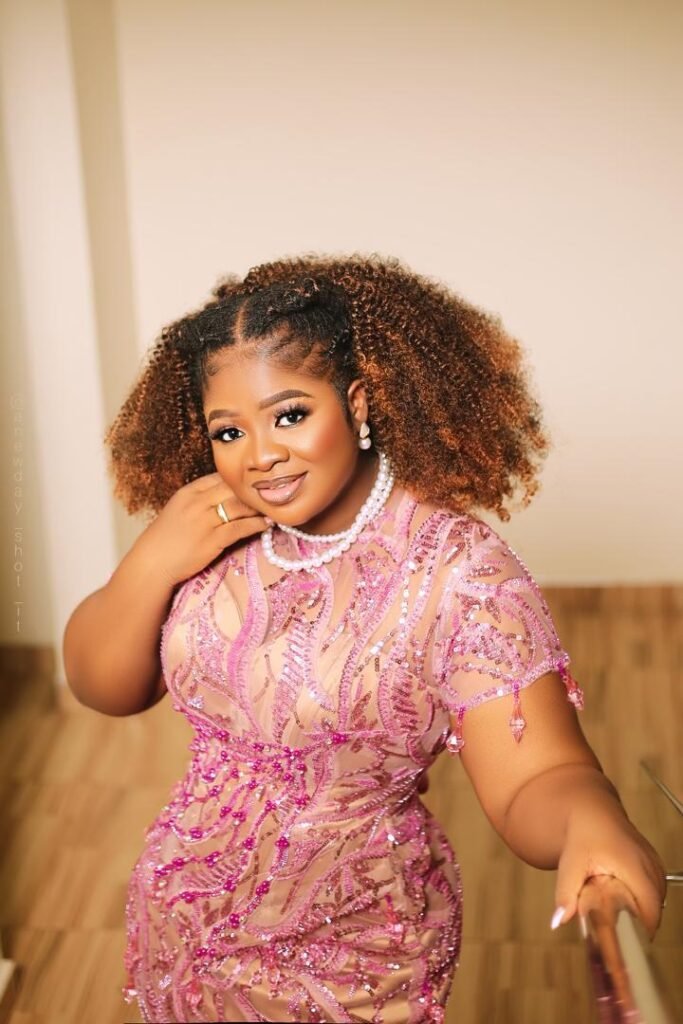
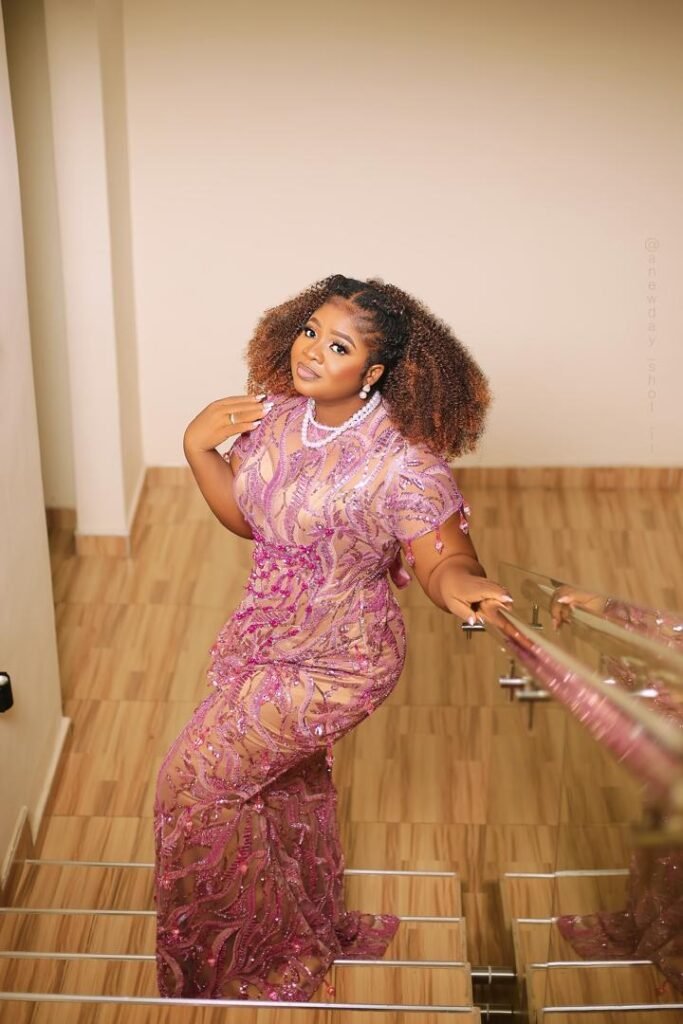
As a result, she has become a mentor to hundreds of successful fashion designers and is a crucial resource for industrial attachment and internship for students studying fashion, textiles, and garment studies at both public and private universities.
Awards
Adjoa Yeboah Clothing was honoured as the Fashion Brand of the Year at the 2019 Women’s Choice Awards due to her outstanding leadership and stellar delivery of fashion outfits in the year under review.
Furthermore, her clothing line has collaborated with Media General/ TV3’s flagship culture and entertainment show ‘Ghana’s Most Beautiful’ as the fashion hub of choice.
She also collaborated with esteemed national and international personalities and fashion brands such as Vlisco (including the Vlisco Ambassador project) to outdoor many spectacular product collections.
Adjoa worked with Vlisco as a fashion designer in 2014 where she designed and clothed Vlisco’s Ambassadors.
She also curated looks for other Vlisco influencers as well as those for Vlisco Radiance Bridal fair. In 2017, she partnered and unveiled Vlisco Capsule Collection in the flagship store at Accra Mall.
Challenges
Like any entrepreneur, she faces challenges, particularly in balancing creative innovation with the daily management of the business. Earlier on, she saw the need for more training to manage the operational side of the brand, which led her to pursue further studies in management.
Again, she was affected gravely by the high cost of production (ie materials, power, and accessories) which affects the cost of the final product.
Aspirations
Adjoa aims to position her clothing line as a globally recognised brand that continues to empower women and inspire the next generation of designers.
She also want to continue advocating for the empowerment of women and children, using her platform to make a positive impact.
Education
She pursued a management degree at the Ghana Institute of Management and Public Administration (GIMPA) to enhance her business skills, and also completed the Women Entrepreneurship and Leadership Africa (WELA) Programme at the China Europe International Business School to learn how to position the brand for global success.
Hobbies
Adjoa Yeboah loves listening to a blend of soul, jazz and traditional music, and likes to travel to the countryside to enjoy nature as a source of inspiration. She also loves to read and watch latest trends in the world of fashion.
Born to Mr George Adjei Anobi and Madam Faustina Kyeremaa, she is the first among four siblings – (three girls and a boy) and hails from Berekum in the Bono region.
Advice
Adjoa wants the youth to focus on what they’re passionate about and dedicate time and resources to mastering their skills. Excellence doesn’t happen overnight—it’s a result of consistent effort and learning.
By Linda Abrefi Wadie
Profile
From dormancy to dominance: Rev. Emmanuel D. Niikoi’s inspiring netball journey
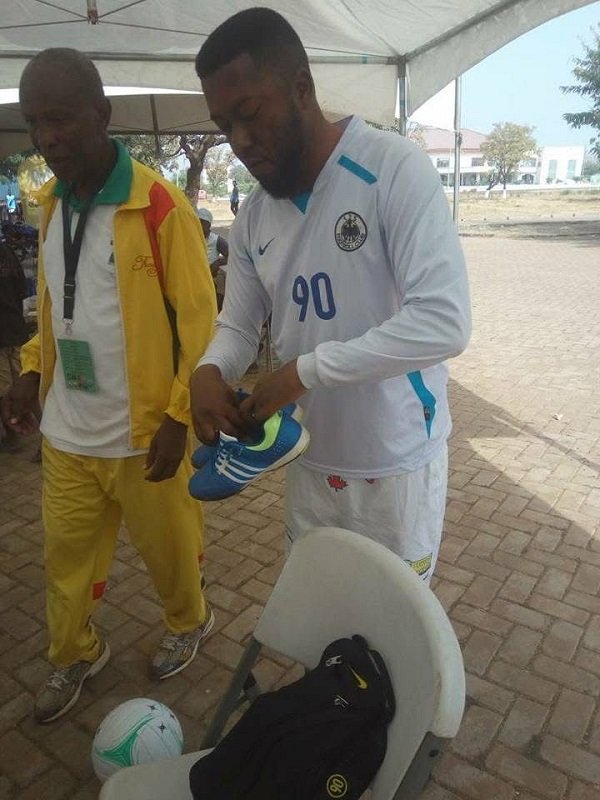
IN the annals of Ghana’s sporting history, certain individuals stand out not merely for participating in sport, but for transforming it.
Rev. Emmanuel D. Niikoi is one such figures. Revered as the father of modern netball in Ghana, is widely credited with rescuing the game from near extinction and transforming it into a vibrant, structured and nationally recognised sports discipline.
His journey reflects vision, resilience and an unwavering commitment to youth and sports development.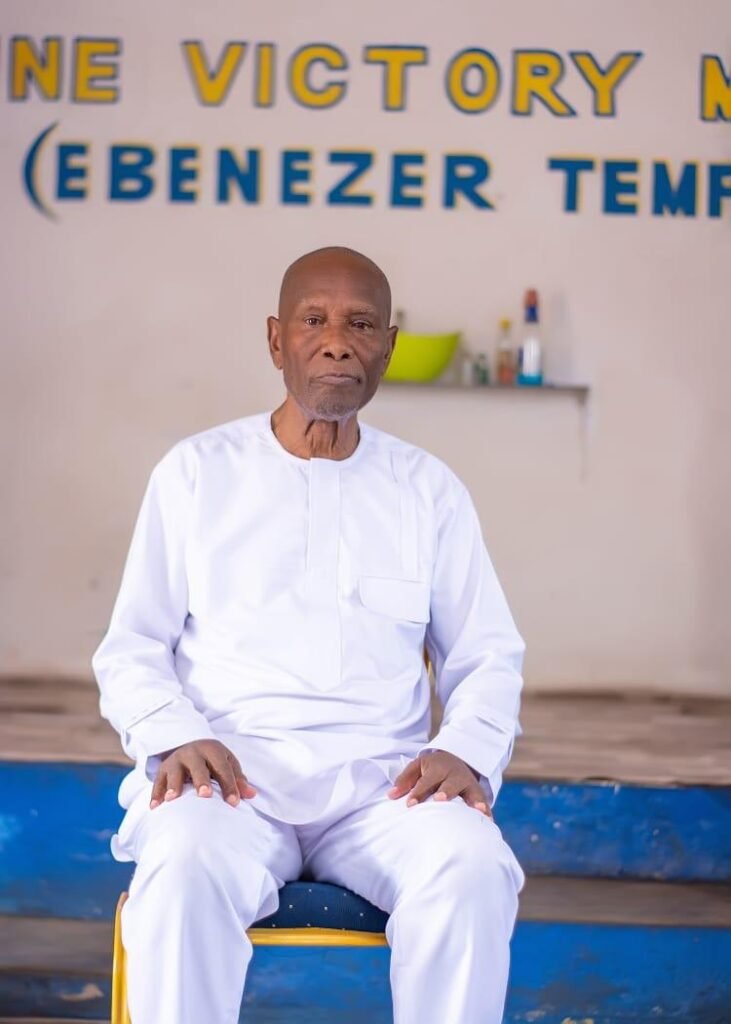
Netball was introduced to the then Gold Coast by Christian missionaries alongside formal education. By the 1960s and early 1970s, the sport had gained remarkable popularity in schools and colleges, ranking second only to football and, in some institutions, rivaling it in appeal.
However, during the 1974/75 academic year, the Ghana Education Service (GES) took a policy decision to step down netball in favour of basketball development. The decision dealt a severe blow to the sport.
Between 1975 and 1985, competitive netball virtually disappeared from Ghana’s sporting calendar.
That decision of the GES can be blamed for the current state of the sports that is producing heroines across the globe.
The revival of the game can be traced to 1985 during the Golden Jubilee celebration of the Ghana Broadcasting Corporation (GBC).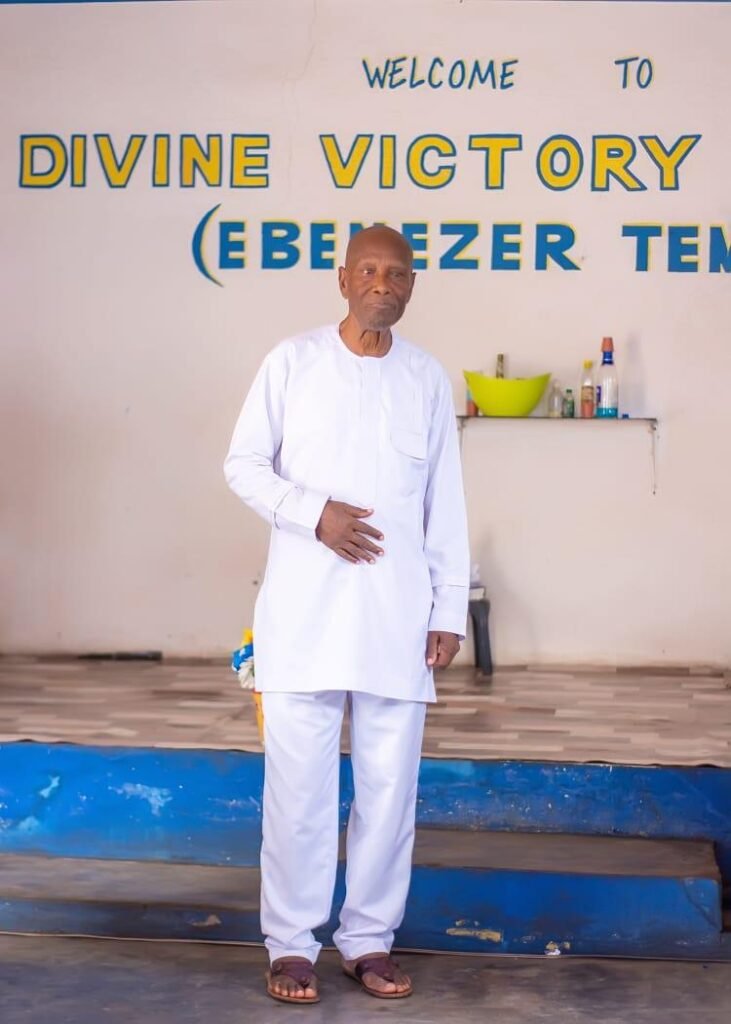
At the time, Rev. Niikoi was serving as Chief Editor (News) in the Radio Newsroom. Understanding both the historical importance and untapped potential of netball, he championed the inclusion of a netball tournament as part of the anniversary celebrations. The event reignited public interest and reminded many of the sport’s former glory.
Crucially, Rev. Niikoi did not allow the momentum to fade after the festivities. The GBC netball team formed for the tournament, aptly named “Golden Hands,” became the cornerstone of a national revival campaign.
With determination and personal sacrifice, he led tours across the country, using the team as a practical training platform.
He personally taught sports teachers under the GES the official rules of netball, reintroduced structured competition, and restored confidence in the sport’s viability.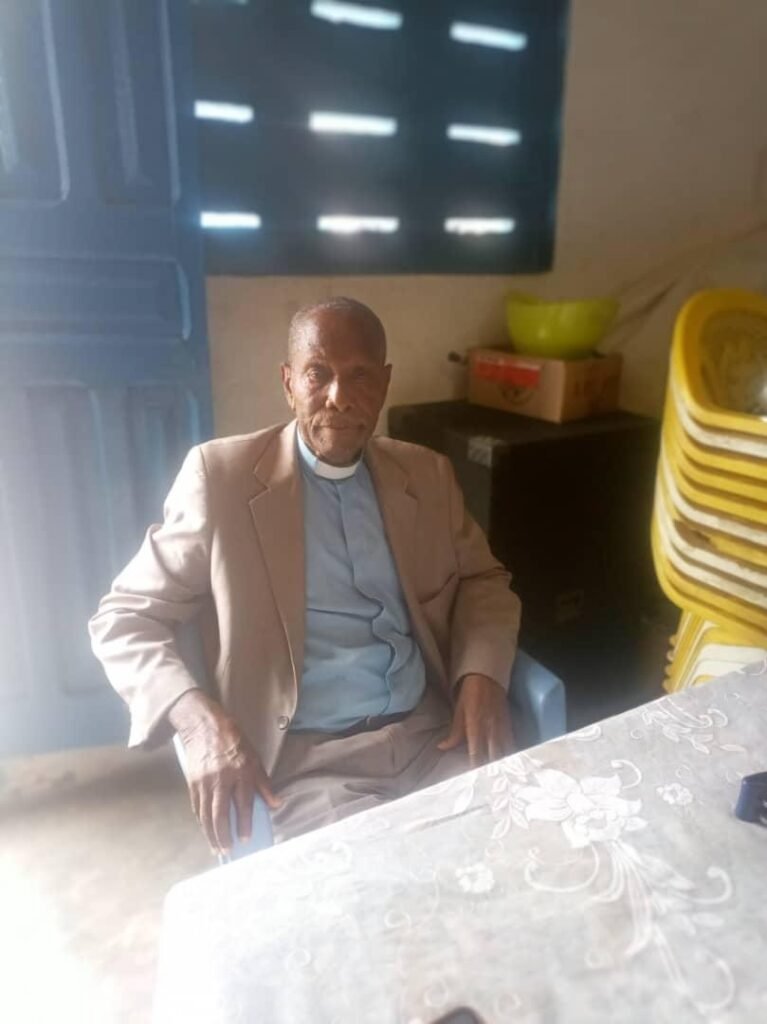
These efforts culminated with the formation of the Netball Association of Ghana in 1988, now known as the Netball Federation of Ghana.
In 1990, the association gained formal recognition from the National Sports Authorities, previously known as the National Sports Council (NSC), restoring netball’s status as an official sporting discipline.
This milestone marked the rebirth of organised netball in Ghana and cemented Rev. Niikoi’s place as founder of the national governing body.
Revival soon transitioned into consolidation. Over the years, Rev. Niikoi consistently lobbied educational and sports authorities to reintegrate netball into major school competitions.
His advocacy led to the sport’s reintroduction into the National Basic Schools Sports Festival, the Senior High and Technical Schools Sports Festival, the Colleges of Education games, and competitions under the Ghana University Sports Association (GUSA).
Today, netball is played across the entire educational structure in Ghana, from basic schools to public universities, a testament to his sustained and strategic efforts.
On the continental and global front, Ghana is a full member of World Netball and was a founding member of the Confederation of Africa Netball Associations (CANA), now Africa Netball.
In 2004, Ghana hosted the inaugural Africa Netball Cup of Nations in Accra and emerged champions after defeating Namibia in the final. The victory not only boosted Ghana’s sporting image but also validated years of groundwork.
In 2007, Rev. Niikoi was elected Director of Marketing and Media for CANA, serving a four-year term and contributing to the sport’s development across the continent.
In 2019, following governance reforms required by the International Olympic Committee to lift sanctions related to state interference in sports administration, national federations were mandated to adopt independent constitutions. Under this new framework, the Netball Federation of Ghana successfully drafted its constitution and conducted elections.
On June 19, 2019, Rev. Niikoi was elected the federation’s first President under the independent constitutional order which is symbolic and deserved recognition of decades of service.
Beyond netball administration, Rev. Niikoi also served two terms spanning eight years from March 2018 to March 2025 as an Executive Board Member of the Ghana Olympic Committee.
His presence on the board ensured that netball maintained visibility within Ghana’s broader Olympic movement.
A Bachelor of Arts graduate in Combined Honours (History and Law), Rev. Emmanuel D. Niikoi has trained numerous coaches and umpires nationwide, strengthening the sport’s technical foundation and ensuring sustainability.
His leadership style combines administrative discipline with grassroots engagement, making him both a strategist and a mentor.
From dormancy to dynamism, the resurgence of netball in Ghana bears his unmistakable imprint. Through advocacy, institution-building and capacity development, Rev. Niikoi has secured a lasting legacy.
Today, every netball match played in Ghana, whether at a basic school court or a university festival stands as living testimony to his vision and perseverance.
By Esinam Jemima Kuatsinu
Profile
Autism Awareness Care & Training: Pioneering autism care, inclusion in Ghana
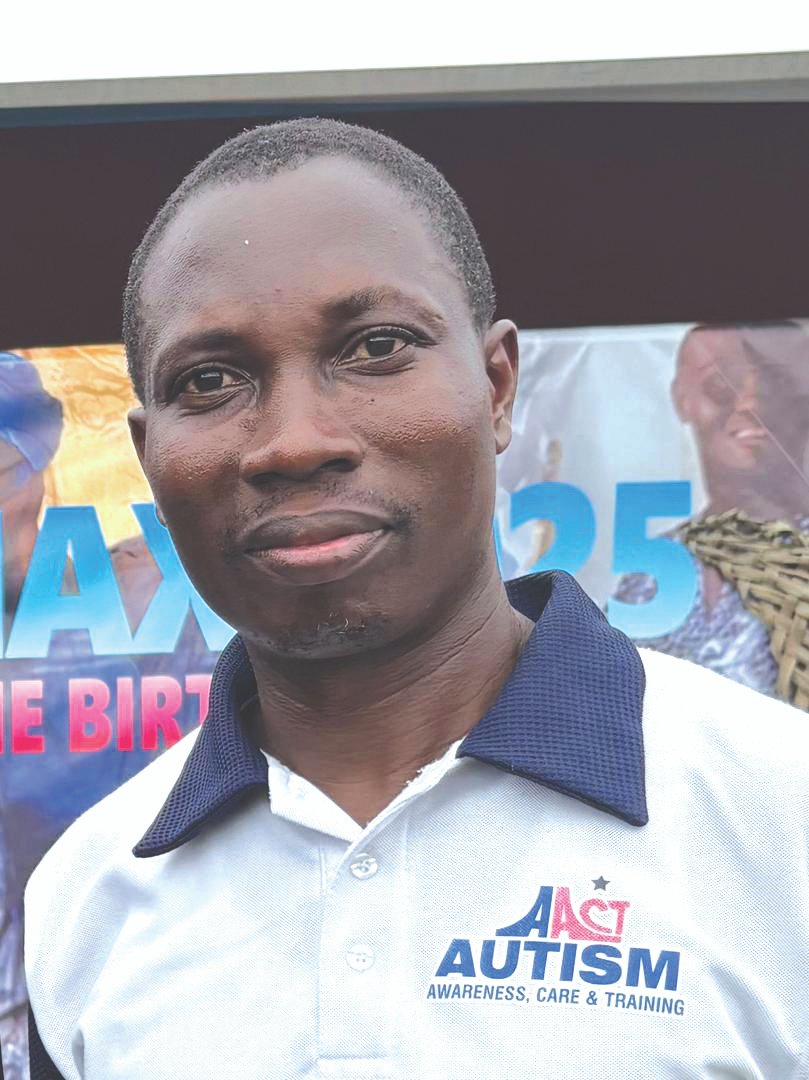
AUTISM Awareness Care and Training (AACT) is Ghana’s first autism-focused centre, playing a pioneering role in the care, education, and advocacy for children on the autism spectrum and their families.
Established in 1998, AACT began as a parent-support and training initiative at a time when autism was poorly understood in Ghana. Many families raising autistic children faced stigma, isolation, and limited access to information or professional assistance.
Over the years, the organisation has evolved into a full-fledged autism care and training centre, responding to the growing demand for specialised services and sustained nationwide awareness.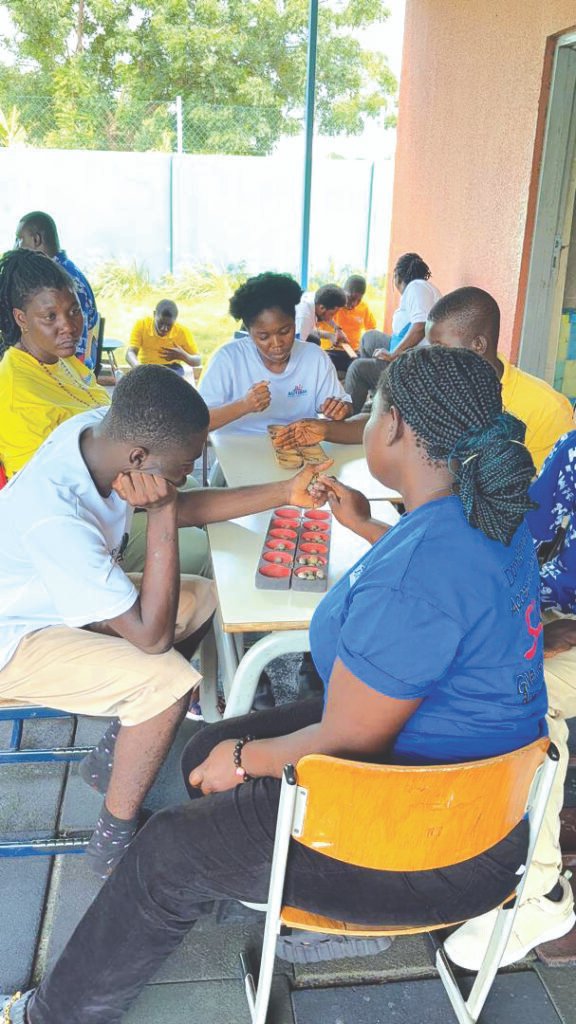
AACT is currently located in Haatso, Accra, where it operates a structured day programme serving about 25 learners daily. The centre provides a safe, inclusive, and supportive environment where children with autism are guided to develop essential life, social, and functional skills.
Programmes at the centre focus on independent living skills, vocational and pre-vocational training, functional academic skills, and therapeutic interventions. These activities are tailored to the individual needs of each learner, recognising that children on the autism spectrum learn and develop at different paces.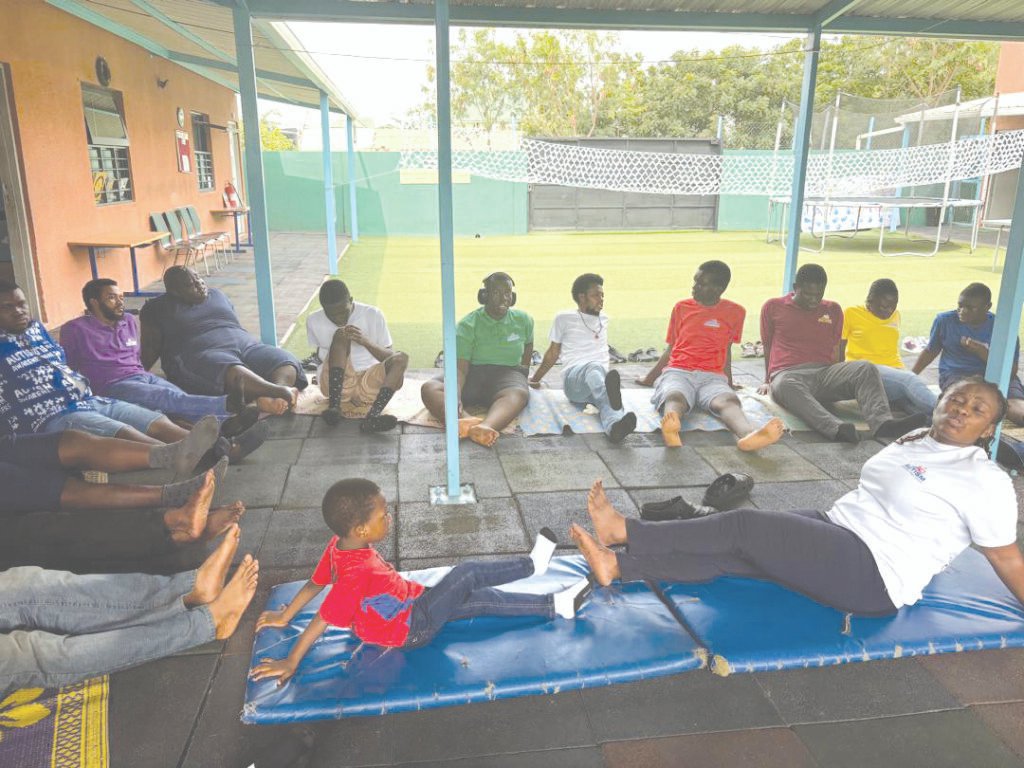
According to Abeiku Grant, Head of Programmes at AACT, the centre’s philosophy is centred on ability rather than limitation.
“Every autistic child is different,” he said. “Our work is to support them at their own pace and help them discover what they can do, not to focus on what they cannot do.”
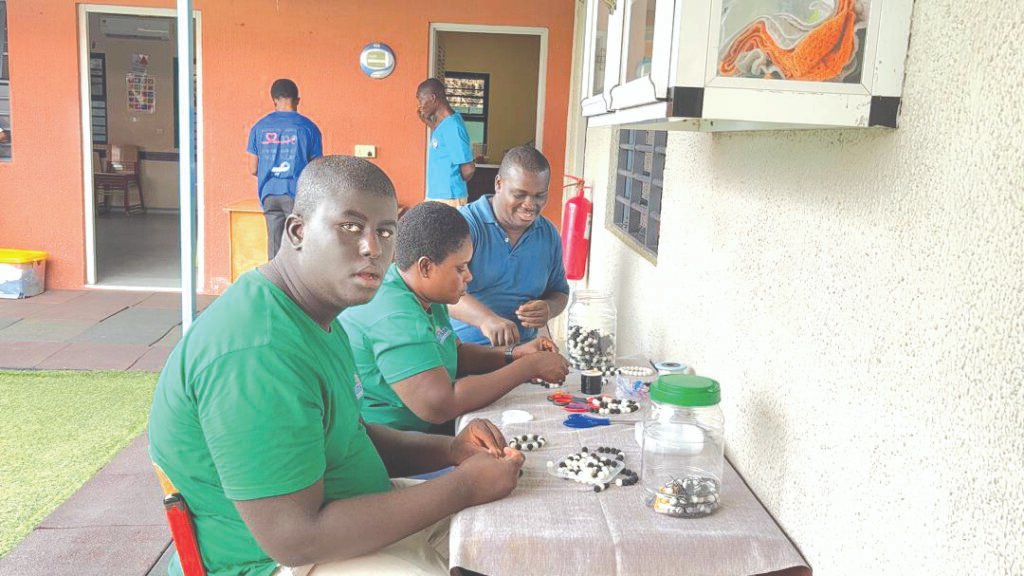
Beyond centre-based services, AACT places strong emphasis on autism awareness and advocacy, particularly within schools and communities. Many children with autism in Ghana continue to face rejection and exclusion due to stigma, misinformation, and the lack of trained personnel in educational institutions.
In 2025, AACT reached over 20 schools across the country, providing autism education to teachers, students, and school administrators.
The organisation also runs free teacher training programmes, equipping educators with practical knowledge and basic tools to support autistic learners in inclusive classroom settings.
“Many schools tell us they are not resourced or trained to handle autistic learners,” Mr Grant explained. “Instead of waiting for change, we decided to go to them and train teachers for free.”
AACT also engages learners directly, addressing widespread misconceptions about autism, including the false belief that autism is contagious or caused by bad parenting. These outreach programmes aim to build empathy among students and promote peer support for autistic learners in mainstream schools.
Another major challenge confronting families is limited access to autism services, especially outside Accra. With most autism centres concentrated in the capital, many families from other regions are forced to travel long distances or keep their children at home due to cost, stigma, or lack of support.
“Education is not meant only for typical children,” Mr Grant stressed. “Children with autism also have the right to education and care. No child should be hidden because of lack of understanding or opportunity.”
As part of its outreach work, AACT supports parents to overcome stigma and encourages social interaction for children with autism, believing that community engagement is essential for development and confidence building.
In December 2025, the centre received what it described as its largest donation of the year, raised by children from the Unmasked Mentoring initiative. According to the organisation, the donation was particularly significant as it demonstrated empathy and social responsibility among young people.
As a non-governmental, non-profit organisation, AACT depends largely on donations, partnerships, and goodwill to sustain and expand its work. Current needs include a minibus for community-based social activities, expansion of its facility to accommodate more learners, sponsorship support for children from financially challenged families, and funding to scale autism awareness programmes nationwide.
Looking ahead, AACT envisions a Ghanaian society that is inclusive, informed, and supportive of persons with autism.
“Our goal is a Ghana where children with autism are accepted and supported,” Mr Grant said. “Every child has potential. All they need is understanding, opportunity, and care.”
By Esinam Jemima Kuatsinu

